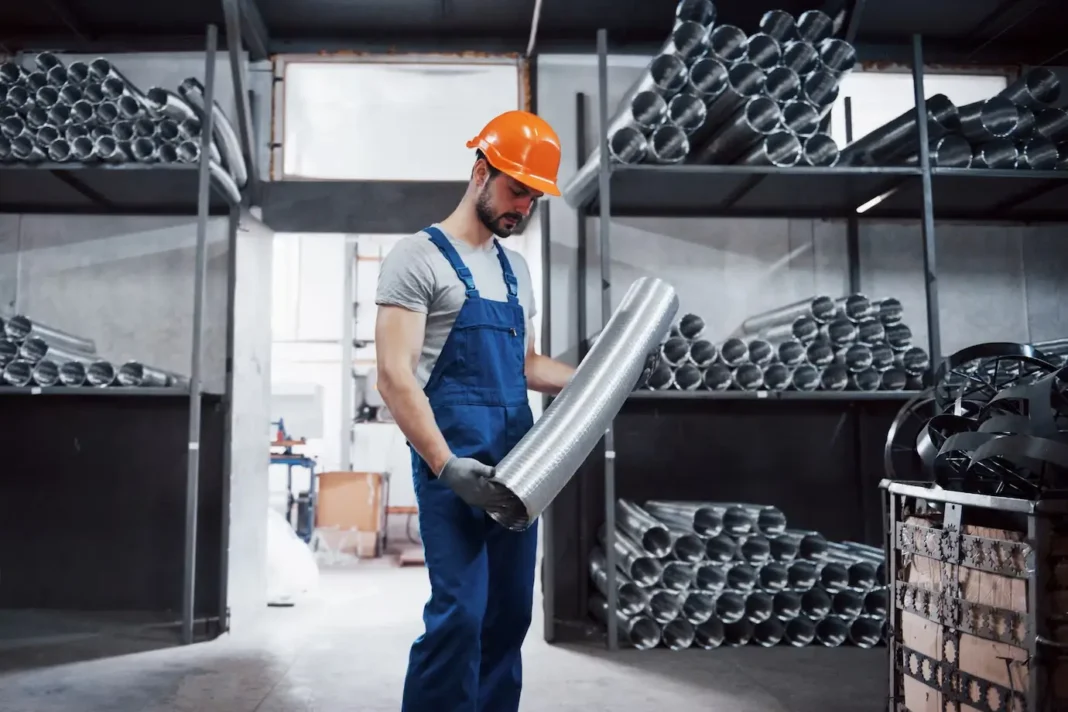Structural steel tubing serves multiple industries throughout the realm of construction and manufacturing and automotive production and architectural work. Wall thickness stands as the main deciding factor for steel tubing selection in any structural engineering project. The smallest dimension of tubing determines the fundamental characteristics which include strength levels together with weight and long-term durability as well as total expense in different industrial settings.
The choice of steel tubing wall thickness demands several factors for it to be appropriate in all applications. Multiple elements including load type requirements and environmental exposure and particular design needs control the selection process. Wall thickness remains a crucial point for material selection because improper neglect can lead to structural failure in products that exhibit subpar performance. Special attention is paid to this factor by professionals throughout the planning stage.
The Relationship Between Wall Thickness And Load Capacity
The material strength of structural steel tubing depends directly on its wall thickness measurements. The strength of tubes improves when walls increase in thickness because this design makes them appropriate for demanding operational environments. Construction projects benefit from the use of tubing within frameworks and supports and columns due to its importance. Products with minimal or decorative requirements can use thin-walled tubing because weight-bearing needs are minimal in these cases.
The outcome of pressure applications depends on wall thickness because it determines how much the tubing will bend. The selection of appropriate wall thickness in machine frames and vehicle components ensures prolonged performance through preventing material fatigue because it enables better resistance to repeated stress or vibration. Tubing thickness performs a critical role in sustaining shape integrity alongside form esthetics during stress-producing conditions.
Wall Thickness And Weight Balance In Structural Applications
The selection of appropriate wall thickness directly affects the total weight of any structure. Tubing with increased thickness carries heavier weight which might strain every part of the system. When weight poses critical constraints such as aerospace operations or transportation applications the determination of optimal thickness becomes vital because operators need balanced material strength with lowest possible weight to achieve best efficiency in performance.
The selection of wall thickness beyond required standards causes both material and maintenance costs to rise. The production of thick tubing requires increased costs at several stages from manufacturing to delivery and assembly procedures. Scientists need to establish a fair equilibrium between the required structural resistance and the load bearing weight limit. Designers study structural load data to establish the right wall thickness which obtains strength requirements together with weight efficiency without endangering safety.
Wall Thickness And Durability Under Environmental Exposure
Selection of wall thickness takes into account the environmental factors which affect the steel tubing. Outdoor structural steel tubing along with applications that encounter corrosive conditions often need supplementary protective features and denser wall dimensions to minimize deterioration impact. Endurance and protection from moisture and chemical damage and temperature fluctuations are enhanced by the additional security provided by a slightly thicker steel wall even when combined with protective coatings such as galvanizing.
Industrial facilities with steel tubing require special attention regarding wall thickness selection since they face harsh operational conditions. Designing the wall thickness correctly allows tubular structures to protect their basic structural integrity when surface corrosive damage occurs. The same principles for selecting aluminum sheet metal thickness based on durability and corrosion protection exist for companies that buy aluminum sheet metal online.
Impact Of Wall Thickness On Fabrication And Installation
The fabrication and joining techniques for steel tubing depend directly on how thick the tubing walls happen to be. Wall thickness directly impacts manufacturability through easier bendability which makes such material suitable for decorative applications. When the tubing measures thicker it provides builders enhanced materials to achieve stronger welded joints that deliver enhanced security.
The process of installation becomes more expensive and complex when machinery needs to handle thicker-walled tubing because additional labor requirements are necessary. The wall thickness of materials should be considered by fabricators and builders both in terms of performance requirements and operational practicality during construction stages. Site operations benefit from time-saving procedures which stems from effective planning in this area.
Cost Considerations In Wall Thickness Decisions
Budgetary implications stem from the choice of wall thickness for any construction project. Justinian’s higher material costs accompany thicker tubing because it delivers superior strength while making the material more durable. Engineering requirements determine the appropriate wall thickness selection since costs should match budget constraints. Cost reductions can happen through thorough comparison work between vendors alongside specifications and market options which also guarantees high quality standards.
Certain components of building projects require builders to purchase aluminum sheet metal online as an alternative material. The usage of aluminum sheets for non-structural elements appears feasible when wall thickness along with design parameters achieve the necessary performance standards.
Conclusion
Wall thickness represents the essential basis for choosing proper structural steel tubing along with its proper applications. Every aspect of the design from strength to stability and weight to cost depends on proper evaluation according to project-specific conditions. Proper wall thickness evaluation makes certain the material operates dependably under stress while enduring tough environmental exposure and staying within engineering parameters along with budget guidelines.
The selection process for steel tubing materials by professional operators who purchase online aluminum sheet metal fundamentally depends on the measurements of wall thickness. Wall thickness proves essential throughout every project development phase beginning with planning and ending with construction implementation.




